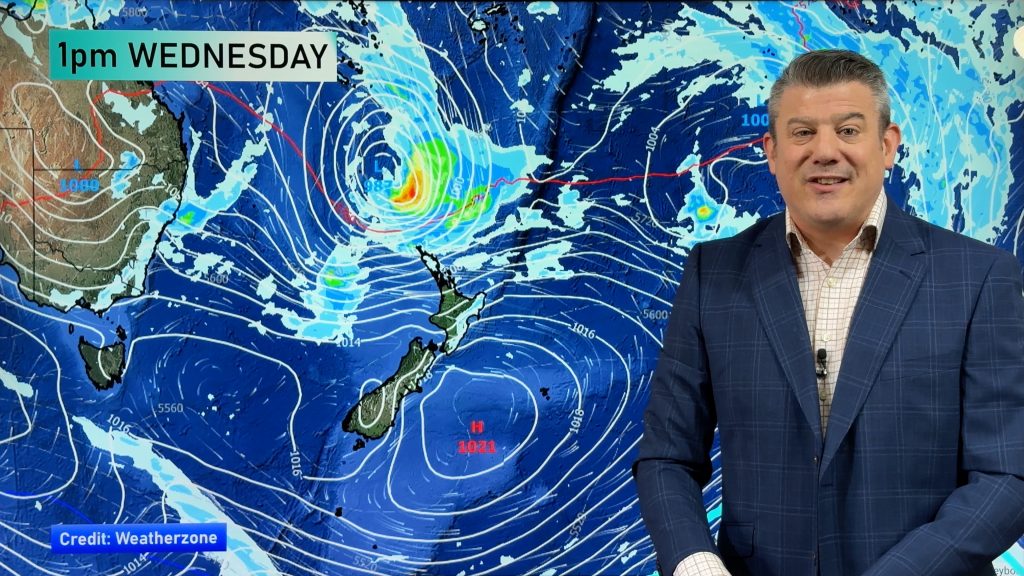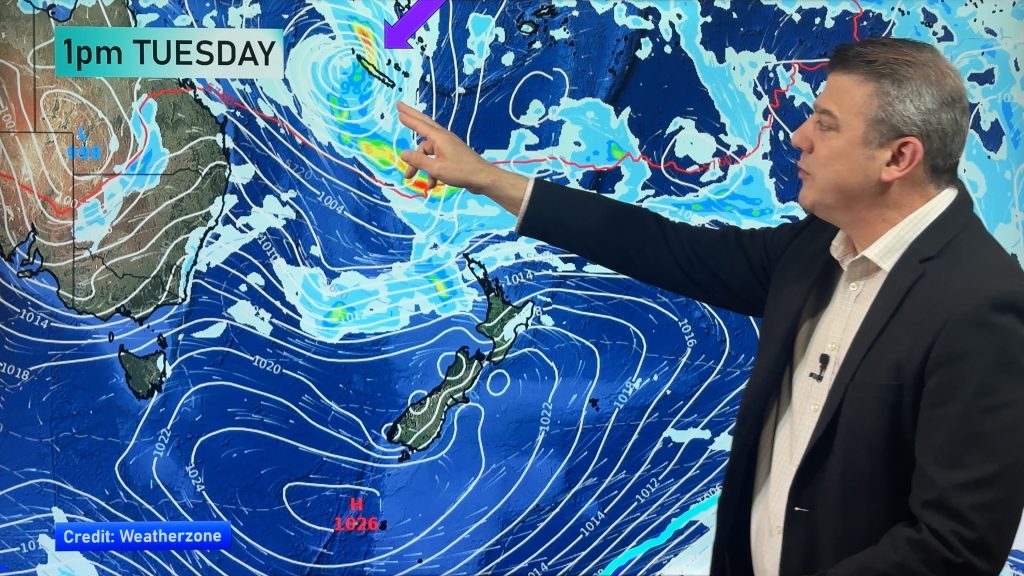Why you can have a high risk for thunder – but still not get any…
9/12/2022 3:00pm

> From the WeatherWatch archives
When the thunderstorm icon appears in a forecast people expect thunder – but we don’t always get them. Why is that?
Put simply, NZ’s location on earth means when we have thunderstorms forecast, often the risk is low to moderate – and that’s like cooking popcorn for half the time you’re supposed to cook it for. You may see a few kernels pop, but the rest stop just short. Often our clouds do the same – with all the intention to turn into a thunderstorm, but it stops short of forming. The most predictable thunderstorms in NZ often occur inland on hot, humid, days. The ones that come off the sea, or impact coastal places (like our 3 largest cities) are far more hit and miss.
Another reason you may miss out on thunder, despite a high risk in your area, is due to the dominant breeze pushing the storms away from you. So they may form in your area over your house – but be pushed well away before they truly get going. This often happens in Auckland, with thunderstorms forming over suburbs but pushed out to sea missing the 1.5 Million people living there.
So the risk can be quite widespread – but in reality the energy to make thunder eventually often gets pushed into one narrow area. This is why you can have a thunderstorm icon but you may have no rain and no thunder all day. But the risk is certainly there – and it may be just a gentle sea breeze that keeps your property sunny and dry one day, but the following day you may get a thunderstorm when that same breeze isn’t around.
To recap – there are MANY variables that control and limit and guide where thunderstorms specifically end up occurring – even if the risk zone is as large as half of our country.
If thunderstorms matter to you – if you need to know the forecast in detail – then never just rely on the basic forecast.
You need to drill down deeper to understand possibilities, risks and other weather features (or geographical ones) that might stop your place from getting a downpour or thunderstorm. To do this watch our weekday weather videos – we usually very clearly explain thunderstorm and downpour risk areas and who misses out. Those who watch our videos tend to have a better understanding of what may eventually occur.
On top of our videos, we have FOUR additional links to help you make sense of your risks – and to help you track any storms that do eventually form:
- RISK AREAS FOR LIGHTNING: Showing highest and lowest risk areas: https://www.weatherwatch.co.nz/maps-radars/lightning/thunderstorm-risk
- OFFICIAL METSERVICE THUNDERSTORM OUTLOOK: https://www.weatherwatch.co.nz/maps-radars/lightning/thunderstorm-outlook
- LIVE LIGHTNING TRACKER: https://www.weatherwatch.co.nz/maps-radars/lightning/blitzortung
- LIVE RAIN RADAR: (Best way to track the downpours – and watching this will make sense to you as to why you may be missing out on downpours, or getting stuck under one!) https://www.weatherwatch.co.nz/maps-radars/radar/rain-radar-realtime
The more you understand about the risks the less disappointment or frustration you will have with your daily local forecast.
- WeatherWatch.co. nz
Comments
Before you add a new comment, take note this story was published on 9 Dec 2022.





Add new comment